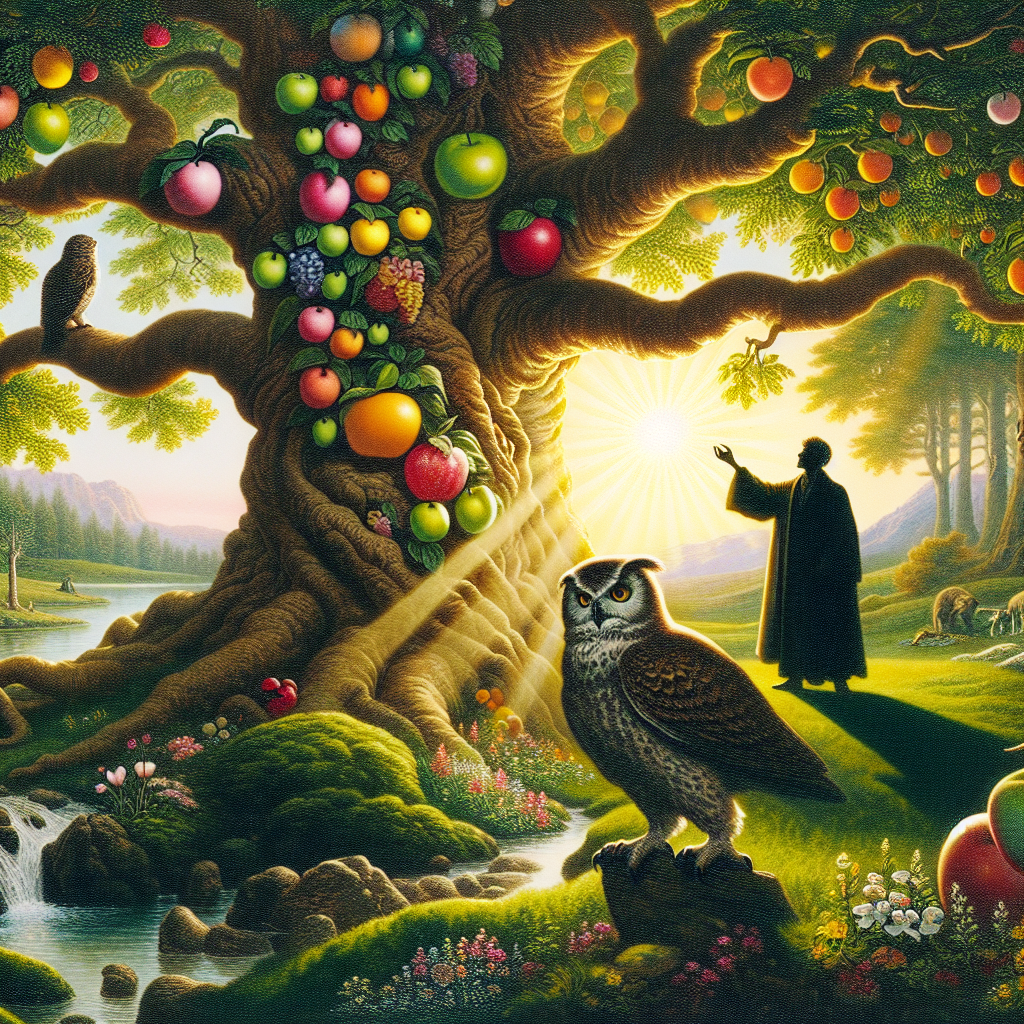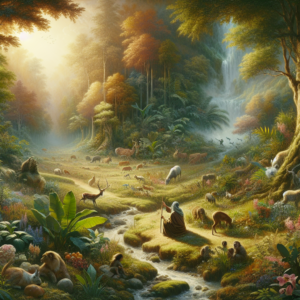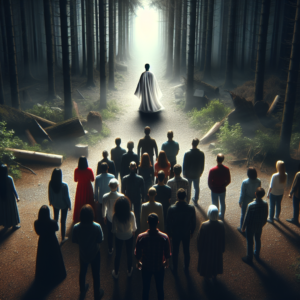Devotional: Embracing Wisdom: Lessons from Adam and the Tree of Knowledge
Scripture Focus: Genesis 2:16-17 (NIV)
“And the Lord God commanded the man, ‘You are free to eat from any tree in the garden; but you must not eat from the tree of the knowledge of good and evil, for when you eat from it you will certainly die.’”
Reflection:
The story of Adam and the Tree of Knowledge presents a profound theological dilemma: the pursuit of wisdom at what cost? In a garden filled with abundant beauty and freedom, God placed a singular boundary that would shape the course of humanity. The Tree of Knowledge of Good and Evil beckoned Adam with the allure of wisdom, yet it was shrouded in divine caution.
Imagine Adam in the garden, fully immersed in God’s creation, yet aware of the pivotal choice he was to make. What does this narrative teach us about wisdom today? It reminds us that true wisdom comes from understanding the boundaries laid out by our Creator.
Educational Insights:
-
Understanding Wisdom: In biblical terms, wisdom is not merely about knowledge but about the proper application of that knowledge in alignment with God’s will. Proverbs 1:7 tells us, “The fear of the Lord is the beginning of knowledge, but fools despise wisdom and instruction.”
-
The Nature of Temptation: Adam’s decision to partake of the fruit serves as a powerful lesson about the nature of temptation. It highlights our tendency to question God’s guidance and to pursue what appears desirable even when it contradicts divine instruction. The serpent’s challenge, “Did God really say…?” (Genesis 3:1), echoes through the ages as a reminder of the doubts we face daily.
-
Consequences of Choices: The consequences of Adam’s choice were significant—not just for him but for all humanity. Our decisions carry weight beyond our immediate circumstances. As seen in James 1:14-15, temptation can lead us to sin and ultimately to death.
Encouragement:
While Adam’s choice led to tragic consequences, it also opens the door to understanding grace and redemption. Each day, we find ourselves at similar crossroads, faced with choices that test our values and our allegiance to God’s wisdom.
Embracing wisdom means recognizing the value of God’s guidance in our lives. It prompts us to seek His understanding over our external desires.
Action Steps:
-
Seek God’s Wisdom: Make a habit of starting each day in prayer, asking God for insight and wisdom in the choices you face. James 1:5 assures us, “If any of you lacks wisdom, let him ask of God, who gives to all liberally and without reproach.”
-
Meditate on Scripture: Spend time reading and reflecting on passages that address wisdom (like Proverbs and Ecclesiastes). Write down the insights you gain and how they can apply to your current situation.
-
Establish Boundaries: Identify areas in your life where you may need to set boundaries, just as God did in the Garden. Reflect on how these boundaries can protect your relationship with God and align your actions with His will.
-
Accountability: Find a trusted friend or mentor with whom you can share your struggles and decisions. Encourage one another to rely on God’s wisdom instead of human understanding.
-
Respond to Temptation with Scripture: Equip yourself with verses that correspond with the challenges you face, allowing God’s Word to be a foundation for the decisions you make.
Prayer:
Heavenly Father, I acknowledge that I am often tempted to seek my own understanding rather than relying on Your divine wisdom. Help me to recognize the boundaries You’ve placed in my life for my benefit. Teach me to fear You truly, and grant me the courage to make choices that honor You. Fill me with Your wisdom daily, and help me be a beacon of Your light to those around me. In Jesus’ name, Amen.
Conclusion:
The story of Adam and the Tree of Knowledge invites us to embrace a deeper understanding of wisdom rooted in our relationship with God. It challenges us to evaluate our choices and the motivations behind them, propelling us toward a life enriched by divine insight. As we navigate our own gardens, may we choose wisely, reminding ourselves that true wisdom can only be found in our Creator.


